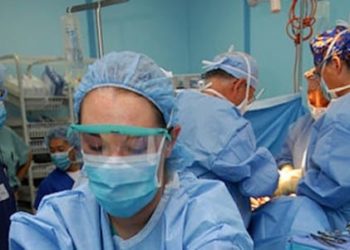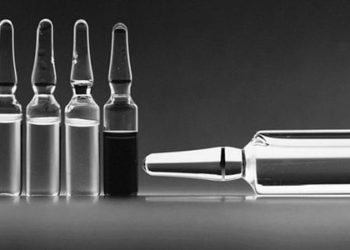Use of post-operative prophylactic drains in pancreatic surgery patients associated with higher morbidity
Jan 31st – Ann. of Surgery – Patients without drains have lower rates of pancreatic fistulas post-operatively.
[tabs tab1=”2MM Rundown” tab2= “2MM Full Report”]
[tab]
Image: PD
1. Patients without drains have lower rates of pancreatic fistulas post-operatively.
2. Drain placement associated with longer hospital stays and readmission rates.
3. Drain placement after pancreaticoduodenectomy associated with lower mortality.
This study corroborates the original findings published from this institution in 2001, when a randomized trial found that prophylactic drain placement did not decrease the fistula rate, but in fact increased it. It demonstrates evolution of the practice and how the six surgeons with highest volume are now less likely to place drains then 5 years ago. Overall, it further supports the notion that drain placement doesn’t decrease complication rate, can lengthen hospital stay, and increases readmission rates with statistical significance. Drain placement in pancreaticoduodenectomy was associated with slightly lower mortality, leaving the possibility that it does afford some benefit in some cases. Nonetheless, the authors are likely right that a standard mandatory placement of prophylactic drains is not beneficial. The biggest strength of this study is that it focuses on a single institutions’ six most prolific pancreatic surgeons, limiting the variability somewhat. The authors also show that clinical demographics of patients treated by surgeons that commonly placed drains were not statistically different than those treated by surgeons with lower volume. However, the study is not randomized to control for some of the surgeon differences and patient characteristics that may lead to drain placement, and a data breakdown is not provided for each individual surgeon, which would help reveal the presence of potential confounders.
Click to read the study in Annals of Surgery
[/tab]
[tab]
Image: PD
1. Patients without drains have lower rates of pancreatic fistulas post-operatively.
2. Drain placement associated with longer hospital stays and readmission rates.
3. Drain placement after pancreaticoduodenectomy associated with lower mortality.
This [retrospective] study utilizes a prospectively maintained database of the pancreatic surgery patients at a single institution. The six surgeons with the highest volume were placed into one of three categories: routine drainers, selective drainers, or routine non-drainers, based on five years worth of patient data. Demographic data, intraoperative results, and postoperative outcomes were analyzed for 1122 patients. Fistulas of all grades were more likely in patients with drains than without (27% vs. 18%, p < 0.001), as were other complications (54% vs. 48%, p = 0.03). For pancreaticoduodenectomies, the most common procedure performed, drain placement was associated with higher intraoperative blood loss and operation duration, longer length of stay, and higher rates of readmission. However, mortality with pancreaticoduodenectomies was slightly lower after drain placement (1% vs. 3%, p = 0.02). Overall, 553 of 1122 patients had drains placed. Drainage practice also evolved throughout the study, dropping from 49% at the beginning of the study to 37% towards the end.
In sum: This study corroborates the original findings published from this institution in 2001, when a randomized trial found that prophylactic drain placement did not decrease the fistula rate, but in fact increased it. This study shows the evolution of the practice and how the six surgeons with highest volume are now less likely to place drains then 5 years ago. Overall, it further supports the notion that drain placement doesn’t decrease complication rate, can lengthen hospital stay, and increases readmission rates with statistical significance. Drain placement in pancreaticoduodenectomy was associated with slightly lower mortality, leaving the possibility that it does afford some benefit in some cases. Nonetheless, the authors are likely right that a standard mandatory placement of prophylactic drains is not beneficial. The biggest strength of this study is that it focuses on a single institutions’ six most prolific pancreatic surgeons, limiting the variability somewhat. The authors also show that clinical demographics of patients treated by surgeons that commonly placed drains were not statistically different than those treated by surgeons with lower volume. However, the study is not randomized to control for some of the surgeon differences and patient characteristics that may lead to drain placement, and a data breakdown is not provided for each individual surgeon, which would help reveal the presence of potential confounders.
Click to read the study in Annals of Surgery
By David Mattos and Allen Ho
© 2013 2minutemedicine.com. All rights reserved. No works may be reproduced without written consent from 2minutemedicine.com. Disclaimer: We present factual information directly from peer reviewed medical journals. No post should be construed as medical advice and is not intended as such by the authors or by 2minutemedicine.com. PLEASE SEE A HEALTHCARE PROVIDER IN YOUR AREA IF YOU SEEK MEDICAL ADVICE OF ANY SORT. Content is produced in accordance with fair use copyrights solely and strictly for the purpose of teaching, news and criticism. No benefit, monetary or otherwise, is realized by any participants or the owner of this domain.
[/tab]
[/tabs]





